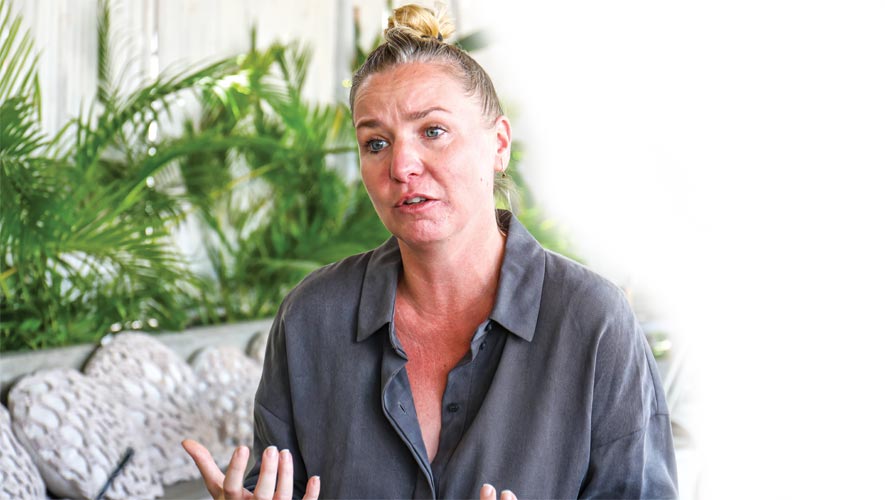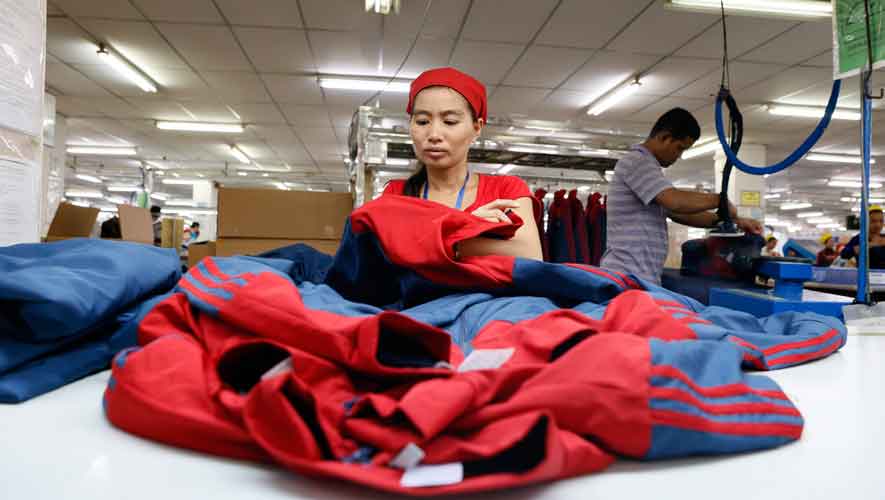The rise of plant-based foods is changing the way people eat and paying dividends for one local chef
For the latest Cambodian Business news, visit Khmer Times Business
Can Emma Fountain change the Cambodian diet? Some deep-pocket investors eying the country’s food sector seem to think so.
Fountain, the British founder of Vibe Cafe, a vegan restaurant chain that started in Cambodia in 2010, is a local pioneer in what has already blossomed into a multi-billion dollar global plant-based food industry.
Fuelled by a large investment, the nutritionist and raw food chef is set to take her recipes and her company global, beginning with expansion in the Southeast Asian retail supermarket and convenience store sectors.
Her timing could not be better. The past two years have witnessed a global demand for healthier plant-based foods, particularly meat alternatives, and the trend is changing the entire global food production system, experts say.
With US companies such as Beyond Meat and Impossible Foods grabbing headlines in the United States and around the world for their plant-based meat products that look, taste and even smell like real beef, many people, the United Nations, and even fast-food chains such as Burger King and Subway are jumping on board. Not only are meatless “meats” healthier, but they could save the planet, advocates say.
The popularity of these products is moving faster than anyone anticipated and investors are optimistic that there is big money to be made.
Sitting at Vibe Cafe near Phnom Penh’s Russian Market, Fountain, who flew to Cambodia this week from her home in Lisbon for four days of meetings with retailers, says growth is imminent. “We are looking at international expansion,” she says.
On May 2, its first day of trading, Beyond Meat’s (BYND) stock price surged 163 percent above its initial public offering price of $25 and the company projects that the plant-based meat market could reach $35 billion in the United States. As of August 13, Beyond Meat’s stock was trading at $169. Impossible Foods has reported issues with trying to keep up with aoverwhelming demand.
The global plant-based meat market is currently valued at $12.1 billion, according to market-research firm MarketsandMarkets. That is expected to reach $28 billion by 2025.
Anthony Galliano, group chief executive officer and founder of Cambodian Investment Management, is one investor who is putting his money where his mouth is. The former senior banking executive at Citigroup and ANZ Bank, says his first foray into the food and beverage sector was not a lark or because he is a vegan. He sees dollar signs from a massive expansion of Fountain’s Vibe brand. Galliano’s group recently purchased a 65 percent stake in Vibe with plans to make the company a wholesaler and franchiser.
Galliano says there is huge local demand for plant-based foods, but so far there hasn’t been a provider. “We want to make it accessible,” he says.
Galliano and Fountain are already in talks with suppliers and major supermarkets and convenience store chains. Fountain says expansion into Thailand and Singapore will happen in 2020. She also mentions Hong Kong as a destination. Eventually, she intends to continue expansion as far away as Europe and Canada.
“The speed of the growth has been wild,” Fountain says. “It’s interesting to see this explode in the past two years,” she adds.
Plant-based foods are growing in popularity largely because the taste has caught up. Fountain’s best-selling item by far is a burger that is made from beans, almond and vegetables. In all, 30 different ingredients go into her burger.
She says the food she makes is not just for vegans and vegetarians anymore. “The mindset was that this is hippie rabbit food and boring,” she says. But as has been documented in the United States, and she can attest to it, most people are traditional meat-eaters.
Although societal norms mean the Asia market, where meat is equated with status, is moving more slowly than in the West, vegetarian and vegan product launches and consumption have grown significantly in the past few years, according to research by Farm Animal Investment Risk and Return. Fountain, who agrees she is operating in a difficult market, says she has personally witnessed a shift. “People thought I was crazy,” she says. Fountain says that eight years ago Asian customers made up just 1 or 2 percent of customers. This year that number has increased to 40 percent. Regional searches for plant-based foods on Google have jumped 91 percent.
Much of the interest surrounding the plant-based food industry comes from customers who want to eat more healthily and also have a greater interest in more environmentally friendly foods.
According to a UN study released on August 8, replacing meat with plant options — dominated by soy, green pepper, squashes, buckwheat and asparagus — farmers can collectively eliminate pastureland use while saving 35 to 50 percent of diet-related needs for cropland. The scientists behind the report wrote that eating less meat and reducing food waste could slash global emissions and benefit human health and the environment.
Another study, published in the journal Nature in October found that as a result of population growth and the continued consumption of Western diets high in red meats and processed foods, the environmental effects of the food system could increase 50 percent to 90 percent by 2050, “reaching levels that are beyond the planetary boundaries that define a safe operating space for humanity”.
Fountain’s transformation from small cafe owner to an international businesswoman with global ambitions started simply. “I had no vision to set up a business here,” she says. “I really did it for myself because I couldn’t get this kind of food here.”
Soon her recipes will be lining store shelves throughout Southeast Asia. Fountain and Galliano have inked deals with supermarket chains. Their supply lines and systems are already in place. “The plans are already under way,” Fountain says. “I am confident our structure can capitalise.”
Part of the plan is ready-to-eat meals that can be purchased at the grocery and taken home to heat up. Vibe will start with 20 products in Cambodia and probably 10 at first in Thailand and Singapore. Fountain says Cambodia is a good testing ground. “We will see which products are successful. I have hundreds of recipes in my head.”
At least one other plant-based food distributor is eyeing the market, but Fountain welcomes the competition. Both Fountain and Galliano compare it with where coffee and food delivery were a few years ago.
“This has really resonated internationally and there is a lot of interest to franchise,” Fountain says.
“The sky is the limit.”




